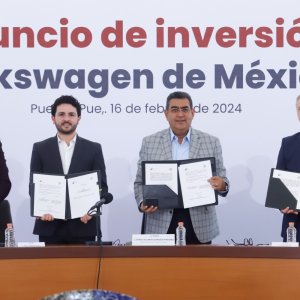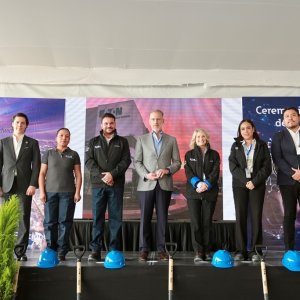Japanese Companies See Dynamism of Nearshoring

STORY INLINE POST
According to the Ministry of Foreign Affairs of Japan, there are 1,272 Japanese companies in Mexico, 54 percent of which are manufacturers related to the automotive industry. The Japan External Trade Organization (JETRO) is a government-related organization that works to promote mutual trade and investment between Japan and the rest of the world. It has had an office in Mexico City since 1958. JETRO also plays a significant role as the first door of entry for Japanese companies that want to expand their business worldwide. For example, about 85 percent of Japanese companies established in Mexico had consulted JETRO before their decision to invest in this country. It is important to mention that, for the last two years, we have been receiving consultations related to nearshoring or geographical relocation of manufacturing.
Mexico is the leading destination for Japanese capital in Latin America in terms of foreign investment, which totaled US$29.8 billion from 1999 to 2021, representing 4.7 percent of the total value of FDI in Mexico during that period. More recently, data from the Ministry of Economy of Mexico shows that from January to September 2022, the total amount of FDI to Mexico was US$32.1 billion, which is 29.5 percent more than 2021. Japan is the fifth-largest investor for Mexico, with the US in first place at 39.1 percent, Canada in second with 9.5 percent, Spain with 7.1 percent and Argentina with 4.9 percent. Japan accounts for 3.9 percent of Mexico's total FDI. The Bajío is the area where the largest Japanese investment is concentrated, and the state of Guanajuato is the most important destination for Japanese investment within the entire Mexican territory. One-fourth of all Japanese companies are in Guanajuato.
According to the results of a company opinion survey on relocation to Mexico conducted by the Central Bank of Mexico, of the more than 1,300 manufacturing and nonmanufacturing companies with 100 or more employees, nearly 20 percent of Mexican companies recognized the importance of nearshoring, which establishes supply sources near consumption areas, due to the problems caused by trade friction and the instability of logistics and supply chains in the aftermath of the pandemic. More than 25 percent of companies in the automobile industry answered that it would lead to an increase in demand and investment, and about 60 percent of companies answered that nearshoring may provide a benefit in the future.
Even after the Biden administration came to power in 2021, the US government continues to impose additional Section 301 tariffs on China introduced by the Trump administration. Additional tariffs, such as the 25 percent tax levied on many Chinese products, are not only encouraging companies in the US to switch their import procurement sources from China to Mexico, but also encouraging Chinese companies to expand into Mexico, mainly in the northeastern industrial states, such as Nuevo Leon. China's investment in Nuevo Leon was just $3.3 million in 2017, but it grew to $49.7 million in 2020 and $38 million in 2021, more than tenfold. In addition, the USMCA, which came into effect in July 2020, has tightened the rules of origin for automobiles and automobile parts, making it necessary to procure many parts within the North American region. The automobile industry, and especially the manufacturing industry, is a factor in moving production to Mexico. Furthermore, the supply-demand gap for semiconductors and other products caused by COVID-19 has reaffirmed the risks related to supply chains that depend on Asia, leading to a renewed awareness of the importance of nearshoring.
It is also important for Japanese companies to centralize their manufacturing and service provision bases in Mexico. In addition to the above-mentioned situation related to China, rising inflation in the US is prompting a relocation from the US. Denso, one of the largest auto parts manufacturers in the world, says Tennessee and Michigan are having trouble hiring talent and the production of old parts has been transferred to Mexico. In October 2022, the company reinvested about $10 million in Guanajuato to expand its factory. It plans to create 200 direct jobs in the future. Japanese motor-maker Nidec is planning to invest an estimated 100 billion yen (US$715 million) in a new plant in Mexico that would produce electric axles, the powertrains of electrical vehicles. Shigenobu Nagamori, Nidec’s Chairman and CEO, says Nidec has had a policy of local production for local consumption since its founding. The Japanese company F.tech announced in December 2021, that its subsidiary in Mexico was given an investment totaling US$100 million after receiving orders for four new models from three automakers. This Japanese auto parts manufacturing company says, since it is no longer possible to recruit human resources in the US, some of those resources have been recruited from South America. In addition, the company's Philippine factory is also recruiting workers for its Mexico factory.








 By Daisuke Shiga | Director for Trade Promotion -
Fri, 12/30/2022 - 09:00
By Daisuke Shiga | Director for Trade Promotion -
Fri, 12/30/2022 - 09:00















